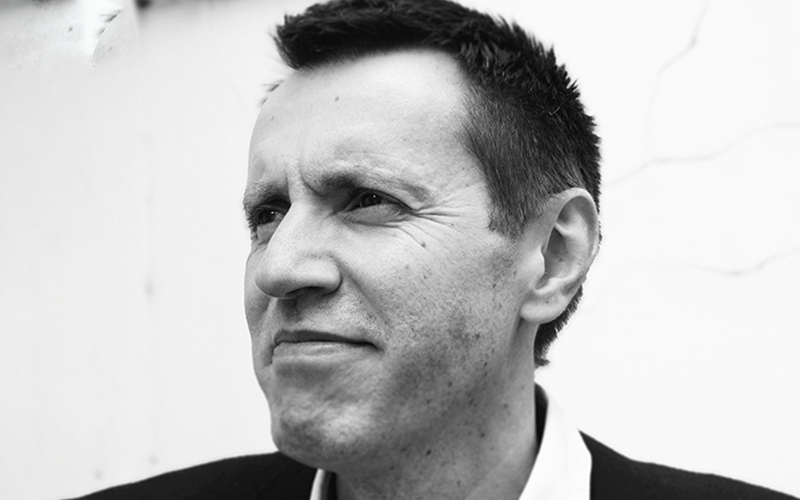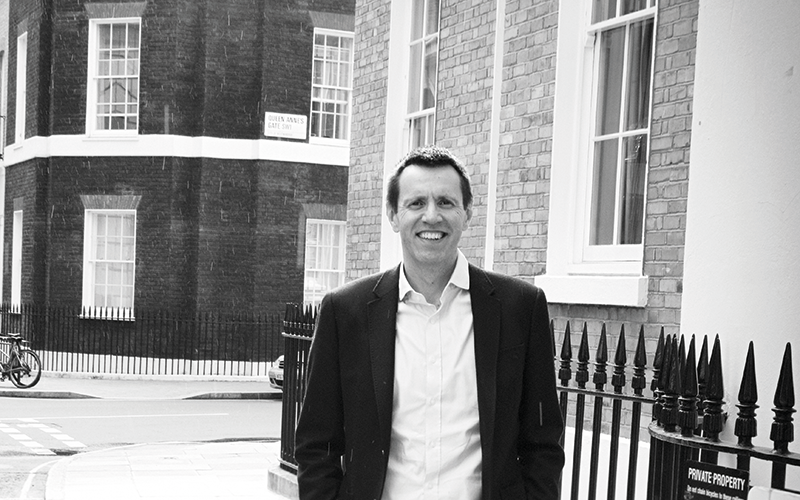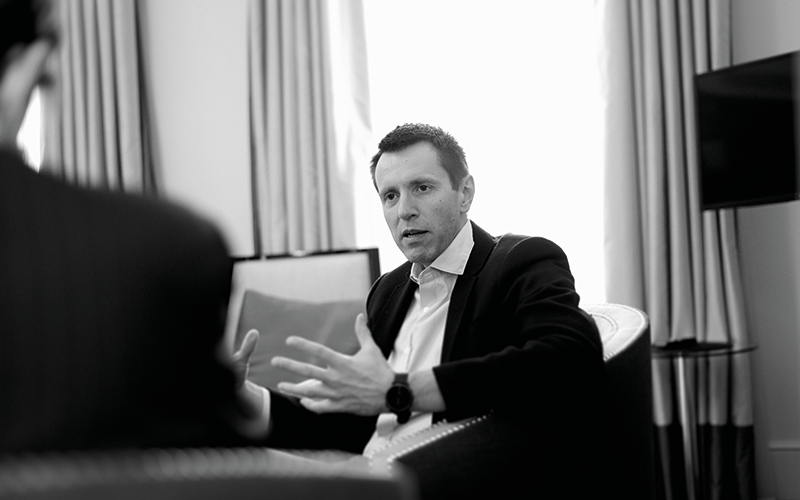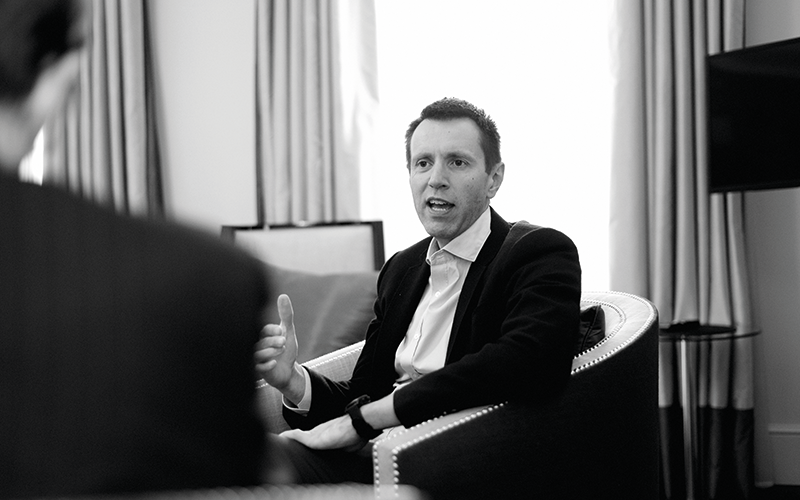
If you’re just angry about the cost-of-living crisis, you haven’t been paying enough attention.
Right now, anyone with an interest in the public sector is focused on influencing manifestos for the next general election.
Not least among them are the people gathering in Westminster for Public Finance Live in June. Very real issues have got to be faced: net zero, a multi-generational housing crisis and the NHS.
But one of the key speakers will be arguing that there’s more at stake – inequality on a huge scale.
James Smith, research director at the Resolution Foundation, has been making it clear that the society we have isn’t working, and that needs to be fixed if everyone is to buy into the mission of saving the planet.
His work focuses on wealth, debt and housing, as well as leading the foundation’s research on macro policy. While most people have been focused on ‘levelling up’ or Ukraine, the Resolution Foundation has been busy with two big statement reports, setting the context of the UK in 2023.
Stagnation Nation put inequality front and centre, and Cutting the Cuts set out how the public sector can play its part in ending the UK’s low-investment cycle.
His stark assessment is that the gap between rich and poor is now critically affecting most areas of UK life.
Time to think
With the country at an inflection point, it is interesting timing to be saying this – similar to the moment in the 1990s when Will Hutton’s book The State We’re In became part of the intellectual rigour that supported New Labour’s rise to power.
Government is about social as well as financial objectives. And the Resolution Foundation is arguing that, for too long, the first haven’t been a priority.
Smith says it is time for “the policy parts of society” to address deep-seated problems that have gone unchecked for decades by parties of either political colour, certainly since the 1980s.
He tells PF: “The UK is a much more unequal society. It feels a bit like we’ve been sleepwalking into a position where we’re now in a low-growth, low-investment country. We are relatively poor compared not only with the US but also European countries that are similar to the UK.”
This is a view shared by the International Monetary Fund, which has forecast that the UK will lag behind its G7 rivals.
The data in the Resolution Foundation’s reports back this up. Low-income households are now 22% poorer than counterparts in France and 21% poorer than those in Germany.
There’s more.
Income for the richest area of the UK (Kensington & Chelsea) is 4.5 times that of the poorest (Nottingham). And eight million young people have never worked in an economy with sustained wage rises.
For politicians, the current key issues are, he says, “immigration, tax, spending, how we fix the NHS”.
But there’s an elephant in the room. He says: “A lot of the trade-offs we face are partly driven by the fact that we are fundamentally growing slower.”
It’s not just a problem but a heightened one: “There’s been Covid-19 and Ukraine but we came into the crises in an already weakened position.
“We’re the only G7 economy that has yet to recover its GDP to pre-Covid-19 levels. We’re hearing it from all of the main political parties that matter,” he says. “But what we’re not hearing is the clear long-term thinking in dealing with that in reality.”

Levelling up
The key point he makes is that the North-South divide is the worst it has ever been. ‘Levelling up’ is a ministerial slogan that Smith warns has given voters expectations.
“The government has really shone a light on regional difference. It resonates, and people want action,” he says.
So, how do we get to a better place? He argues that infrastructure matters more than anything else.
“The best thing you can do is put more resources into transport links in the second-tier cities like Edinburgh. It gives you a better range of skills to choose from and it drives growth better,” he says.
Inequality is a huge problem, and the general election is an opportunity to set out the ideas to solve it. What should be in the manifestos?
Housing is a top priority: “If you want faster growth and stronger cities outside London, it’s the big thing a government has to be decisive on.”
And tackling affordability goes with it: “What we’d want to see is how to address the difficult extremes in regional income inequality.”
Part of the problem, he argues, is that policymakers are looking at London’s growth indicators wrongly.
“Housing is a top priority if you want faster growth and stronger cities outside London”
“It is partly people coming from outside the South East. While that could show up as really fast growth, it has reduced growth elsewhere,” he says.
Healthy future
He agrees that fixing the NHS must be on the agenda, but from the viewpoint that the UK is now an ageing society. More older people are increasing demand and, because they are retired, there is less money coming into the system to pay for it.
it.
But it is also a system that is run year to year and organised according to spending plans and budgets.
Smith explains: “The way we have been approaching the NHS is to run it in a way where it is close to capacity most of the time. That’s understandable – we don’t want lots of wards lying empty. But what that does mean is that when you have that really big emergency like Covid-19 it leaves the system really struggling,” he says. “And we’re going to face more demographic pressures in years to come, people with longer-term conditions.”
Simply moving money across Whitehall departments won’t work, as that won’t address the core problems of a system that fails to recognise different health demands in different areas and doesn’t follow the patient ‘journey’ on leaving hospital.
Smith says: “We’re seeing that big swing from education to health. But we have to think about social care as well.”
Part of that change in approach could include how funding is allocated, ringfencing revenue “rather than a huge reform of the current system”, which would be complex and take years. “Some would include national insurance,” he adds. “It’s thinking more broadly about how we make the system more efficient.”
Climate pressures
The government has set huge targets to achieve net-zero goals, and these are likely to stay in place whichever party is in government after 2024.
It will take more than moving to low-emission cars or better insulated homes. To succeed, expectations will have to change too – including public perceptions about tax.
“The big thing, in reality, is carbon,” he says. “Fuel duty is the thing that we’ve got used to being frozen annually by the chancellor.”
So, what’s the alternative?
“We could reform our use of roads,” Smith says. “Electric cars will be one part of taxation [as] road vehicles,” he predicts. “The obvious area is road tax. You want to do more on the technical side as they develop. It’s an activity we want to continue.”
One critical issue for local authorities and small firms is business rates and the long-term survival of the high street, an issue we raised in the previous issue of PF.
Smith agrees that retail needs some help to survive the onslaught from online. “There’s got to be some talking on how we treat physical bricks and mortar retailing,” he says. “Online retailers are facing lower levels of tax. They can optimise tax by moving through different jurisdictions. Whether we need to do more with business rates is still an open question.”
A national tax approach is an option he thinks the Treasury should explore.
“We need a clear strategy on what we’re good at, what we should do more of and where…”
Whitehall watching
The Treasury could also be the biggest driver of change – not least by ensuring public spending is better protected during low points in the economic cycle.
The Resolution Foundation points out that since the 1970s, whenever there is an economic crisis, public sector investment is cut by an average of 20%. That puts at risk any work to improve quality or innovation, because they aren’t must-haves.
Ending the feast-or-famine funding approach to spending would also help.
“While the government planned to increase investment after the 2019 general election, raising it to levels not sustained since the 1970s, it has been cut just two years later in the wake of Liz Truss’s mini-budget, reversing more than 80% of the planned gains.”
In short, the way the UK pays for health, education and more is too erratic. The foundation says public sector officials have based the way they work on ever-changing plans that demand too much, too quickly and can be stopped at any point. The battle over HS2 is a good case in point. The result is that finance managers – who must also balance the books – are “reticent to commit long-term funds”.
Smith says the answer is clarity from the top: “We need a clear strategy on what we’re good at, what we should do more of and where we should do it.”
Cost of success
But all this comes at a price. How much are we talking about? The Resolution Foundation calculated that if the UK had kept investment at the OECD average since 2000, the public sector would be £500bn better off at 2022 prices.
There’s cause for optimism about things changing. The idea of consistent, long-term investment is catching on – Newcastle City Council is exploring a 50-year plan.
Smith approves: “The one big change we could make is altering our focus to driving better outcomes – and do that by using the way we set public policy.”
He sums up: “It’s having a coherent approach and ensuring that we have plenty of time to achieve it. Have a long-term commitment and stick to it.”




















